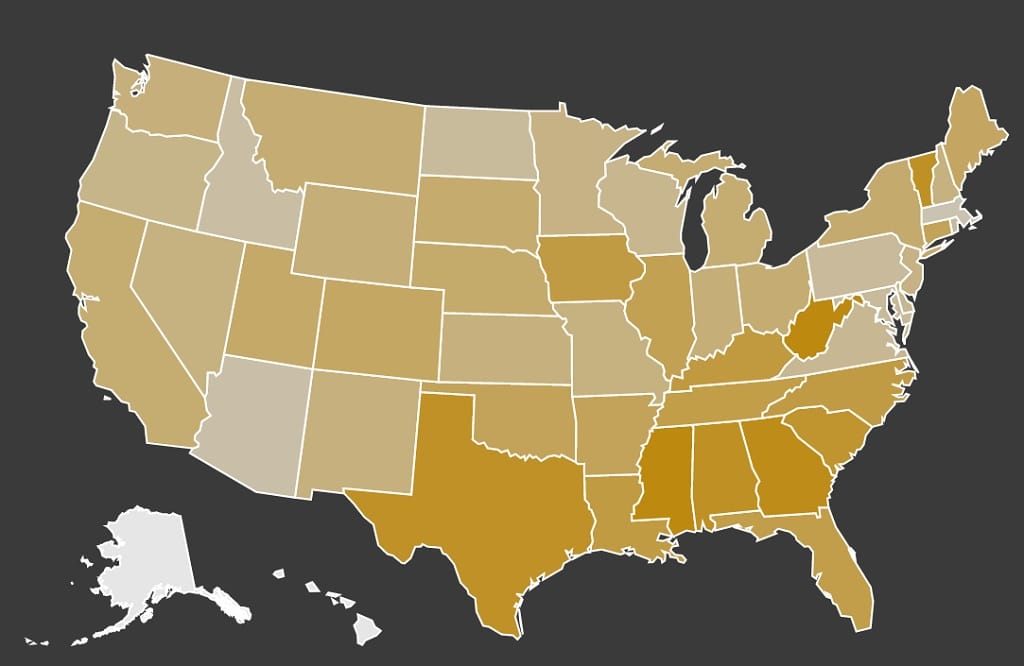Broadband Breakfast Interview with John Busby of BroadbandNow About FCC Data Errors
Though the FCC has claimed that broadband figures are improving, BroadbandNow’s data paints a less favorable picture.

July 1, 2021— For the second year in a row, the Federal Communications Commission dramatically overstated the amount of Americans – 42 million – that do not have access to broadband internet services.
This year, however, the discrepancy was worse than last year. That’s because the FCC now says there are 14.5 million that lack access to broadband, or a difference of 27.5 million. (In other words, 42 million lacking access, minus 14.5 million that the FCC said lack access, equals 27.5 million.)
Last year, the FCC said that 21.3 million lacked access. That number was only two times less than the actual number of 42 million, according to BroadbandNow.
BroadbandNow, a data aggregation company helping millions of consumers find and compare local internet options and make more informed decisions when choosing which service to use, recently published its estimate of broadband availability in all 50 states.

In this interview with BroadbandNow Managing Director John Busby, Broadband Breakfast Editor and Publisher Drew Clark explores Broadband Now’s recent report, “BroadbandNow Estimates Availability for all 50 States; Confirms that More than 42 Million Americans Do Not Have Access to Broadband.” That report built upon a prior report from the first quarter of 2020.
The report clashes with FCC data which it obtains from the widely-criticized Form 477. BroadbandNow fact-checked the agency’s data by manually combing through more than 58,000 addresses and checking ISP data available for each of the addresses.
Busby said that the FCC subsequent assertion that the number of people lacking broadband dropped from 27.5 million to 14.5 million “simply does not pass the sniff test.”
Busby also offered two recommendations to improve the connectivity issues facing the country.
First, the FCC should adopt the recommendation of Acting Chairwoman Jessica Rosenworcel and raise the minimum speed limit.
The FCC currently defines broadband as any network that can sustain 25 Megabits per second (Mbps) download and 3 Mbps upload. Critics say that the 25/3 standard is out of line with modern consumer habits, which require both higher download and upload speeds.
Busby said BroadbandNow supports 100 Mbps down and no less than 25 Mbps up, particularly now that Americans are using the internet for everything from telehealth, to telework, to distance learning in the wake of the pandemic.
Busby also touted Rosenworcel’s Broadband Data Task Force because it would audit the current reporting methodology to identify and eliminate potential gaps in how data is gathered.

Map from BroadbandNow’s report of over-reporting by state. More orange reflects a higher error rate.
This Broadband Breakfast interview is sponsored by:

See also:
- Broadband Breakfast Interview with Tyler Cooper and Jenna Tanberk about Open Data Set from Broadband Now, November 20, 2020
- Broadband Breakfast Interview with BroadbandNow about Gigabit Coverage and Unreliable FCC Data, December 27, 2020
- Broadband Breakfast Interview with BroadbandNow about Lower Costs and Lower Latency, February 25, 2021
- Broadband Breakfast Interview with John Busby of BroadbandNow About FCC Data Errors, July 1, 2021
And don’t miss “Broadband Breakfast Live Online event on Wednesday, July 7, 2021 – Broadband Mapping is Back!”









Member discussion